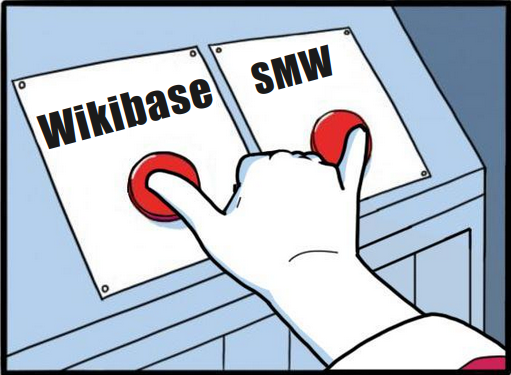
Semantic Wikibase: 2024 Update
Learn about the latest Semantic Wikibase developments presented at the MediaWiki conference in Vienna.
At the recent MediaWiki Users and Developers Conference, we presented Semantic Wikibase, our connection between Wikibase and Semantic MediaWiki. Our CEO Jeroen De Dauw was joined by Lozana Rossenova and Kolja Bailly from TiB Hanover, who have developed several enhancements for the extension.
What is Semantic Wikibase
We released the first Semantic Wikibase prototype in 2020. Its main selling point is that it allows you to query and visualize your Wikibase data directly in your wiki via SMW's inline queries and result format visualizations. You also gain autocomplete in forms and export in various formats that the SMW API supports.
In the 2020 release announcement, we listed several ideas, such as support for remote Wikibases which enables querying data from Wikidata. One of those ideas is to go beyond synchronization of Statement values, and to also translate Statement Qualifiers to the Semantic MediaWiki data model. This is one of the new features that TiB has developed.
What is New in 2024
The highlights:
- Compatibility with recent MediaWiki versions, including MediaWiki 1.39 LTS
- Support for Wikibase Qualifiers by using SMW subobjects
- Partial support for the Extended Date Time Format provided by our Wikibase EDTF extension
Success Stories
Kolja gave a dedicated talk going over how Open Science Lab has used Semantic Wikibase to create multiple websites.
Highlights:
- Visualization and aggregation of Wikibase data, via Semantic MediaWiki queries
- Ability to edit Wikibase Items via forms, by using Page Forms and Widgets
- Attaching categories to Wikibase Items
Form editing of Wikibase items is achieved via an inventive and pragmatic combination of existing tools, including Semantic Wikibase, Page Forms, Widgets, and the Wikibase web API. This approach allows for user-friendly creation workflows for Wikibase Items via domain-specific forms with validation and autocomplete. The more sophisticated forms are not live yet, but you can check of this more basic form editing example.
Memorably, near the end of his talk, Kolja showcased a project involving AI-assisted text tagging of philosophical texts using an AI model and a historical dictionary. In this project, eye-catching 3D visualizations show the semantic distances between terms, providing transparency into the AI model's performance and revealing areas needing improvement.
Semantic Wikibase websites from Kolja's talk:
Learn More
- Semantic Wikibase (article)
- Semantic Wikibase (extension page)
- Semantic Wikibase on GitHub
- MediaWiki Users and Developers Conference 2024 Vienna

Participate
- Wikibase Faceted Search Released
- Semantic MediaWiki 5 Released
- Top Wikibase Extensions
- 2024 MediaWiki Conference Highlights
- Semantic Wikibase: 2024 Update
- We Partner with HalloWelt to Provide BlueSpice
- Semantic MediaWiki 4.2.0 Released
- Is Wikibase Right for Your Project?
- New Extension: Wikibase Export
- Semantic MediaWiki 4.1.0 released